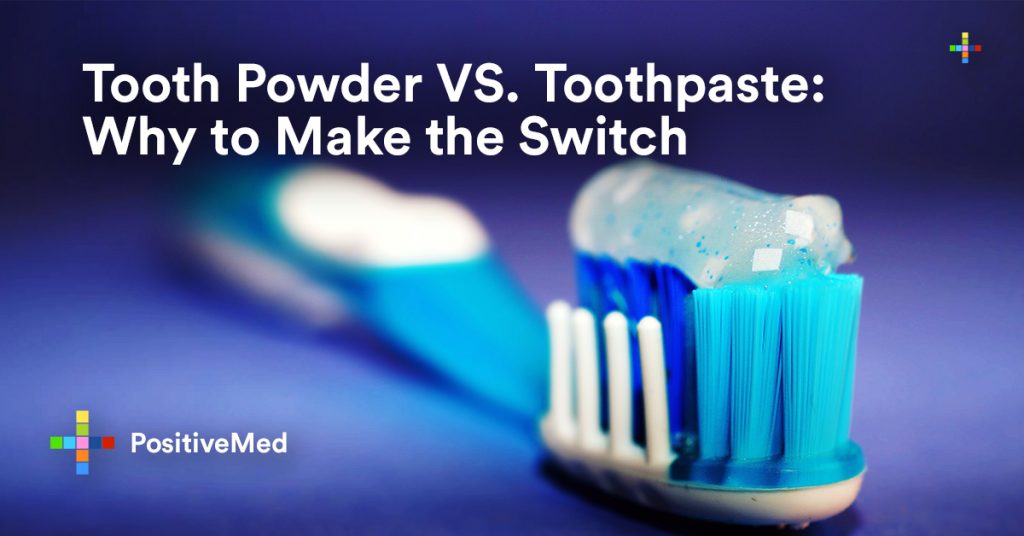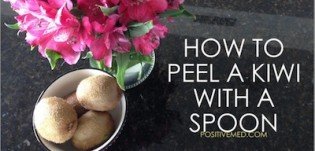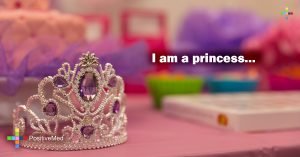While toothpaste is a staple in keeping up with your dental health, it’s not the only option to keep your pearly whites clean and free of bacteria. Did you know that before there was toothpaste there was tooth powder? Over the last few years, tooth powder has made a resurgence and for good reason.

What Is Tooth Powder?
Tooth powder is often made with baking soda, a blend of clays, and essential oils that not only clean your teeth, but also strengthen and re-mineralize them. Tooth powder has also proven to help with bad breath and even cavity-prone teeth. If you’re in need of a dental hygiene makeover, this is the product that you want to have on your bathroom counter.
The Proof Is In The Powder
There are many benefits to using dental powder over toothpaste that many people just aren’t aware of. The fact is that toothpaste is what most of us grew up using. It’s what we see on T.V. and other advertisements. Traditional toothpaste has worked for years, so why switch? The proof is in the powder.
No Harmful Ingredients
One of the biggest perks of tooth powder over toothpaste is that powder is made with natural and wholesome ingredients. If you’ve ever looked at a toothpaste box, you’ve probably seen ingredients such as fluoride, glycerin, and other chemicals that can have a negative impact on dental health. Fluoride is poisonous if ingested and glycerin leaves a film on the teeth, which prevents remineralization.
Dental powder is made with non-toxic ingredients including:
• Bentonite clay
• Baking soda
• Sea salt
• Peppermint essential oil
Other common ingredients include cinnamon, charcoal, and coconut oil. The best tooth powders use only the necessary ingredients and stay away from the fluff like water, preservatives, and emulsifiers. Instead of these, they are all constructed from ingredients that you can find at a local health or grocery store. This means you could DIY your own dental powder and know exactly what you’re putting into your mouth and on your teeth!
Re-mineralization
What most people don’t realize is that toothpaste lacks the minerals our enamel needs to repair it. When vital minerals are decreased or entirely removed from your teeth, the enamel weakens which leaves you more vulnerable to tooth decay and infection.
Toothpaste also lacks the one-two punch that tooth powder offers. While toothpaste cleans the teeth, it doesn’t make them healthier. On the other hand, dental powder cleans, whitens, and remineralizes at the same time!
More Effective Plaque Removal
Several studies have shown that tooth powder is more effective at removing plaque when compared to toothpaste. The more plaque you can remove from your teeth, the healthier they will be.
It’s important to note that plaque impacts more than your dental health. In fact, plaque build-up has been linked to an increased risk of dementia, heart disease, diabetes, and even arthritis. These risks are related to plaque because it’s believed that oral bacteria can travel to the bloodstream and damage major organs.
Related Link:The Hidden Secret Of Bottom Stripe Color On Your Toothpaste Tube
Healing Properties
One in eight adults suffers from sensitive teeth. Have you ever eaten something cold or drank a hot beverage, only to be greeted with a jolt of pain in your mouth? Tooth sensitivity is more than an annoyance, it can be truly painful. Most people are told to use toothpaste that is designed to alleviate tooth sensitivity, and while it works, it’s only putting a band-aid on the real problem.
Tooth sensitivity is caused by worn or a lack of enamel. Toothpaste meant for tooth sensitivity only numbs the sensitive area, but tooth powder actually heals the underlying problem. Through re-mineralization, your teeth will have access to the minerals needed to improve the surface of your enamel.
Eco-friendly
This may not be the most driving factor for switching to tooth powder, but the fact remains that toothpaste tubes are rarely recyclable. Most toothpaste tubes are made with aluminum, plastic-aluminum, or plastic #4, which aren’t recyclable at all recycling plants. Tooth powder can be made in a recyclable and reusable container. When you run out of powder, clean the container and make more!
Making the Switch
As someone who has used toothpaste for years, you might expect a slight learning curve when switching to dental powder. First, powder isn’t overly sweet and doesn’t foam up like toothpaste. Dental powder gets to work without foaming action. As long as there’s enough on your toothbrush and you’re brushing properly, you can expect it to get the job done.
You’ll also need to get used to dipping your brush into the powder versus putting the paste on it. Once you get the hang of using powder it becomes second nature! While most alternative options have little backing, the







